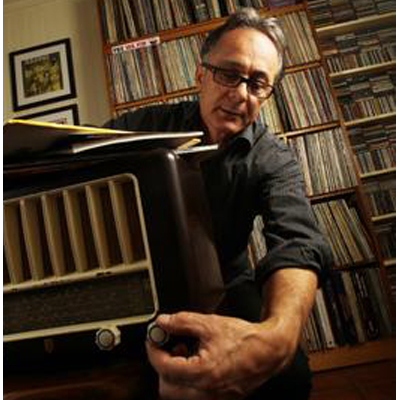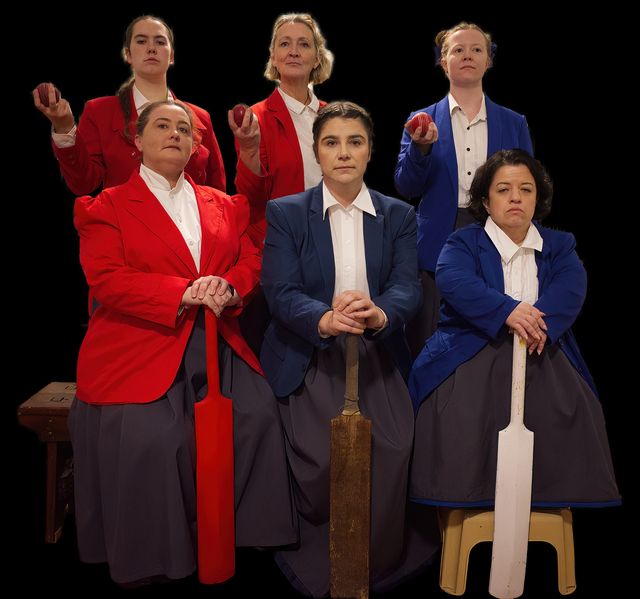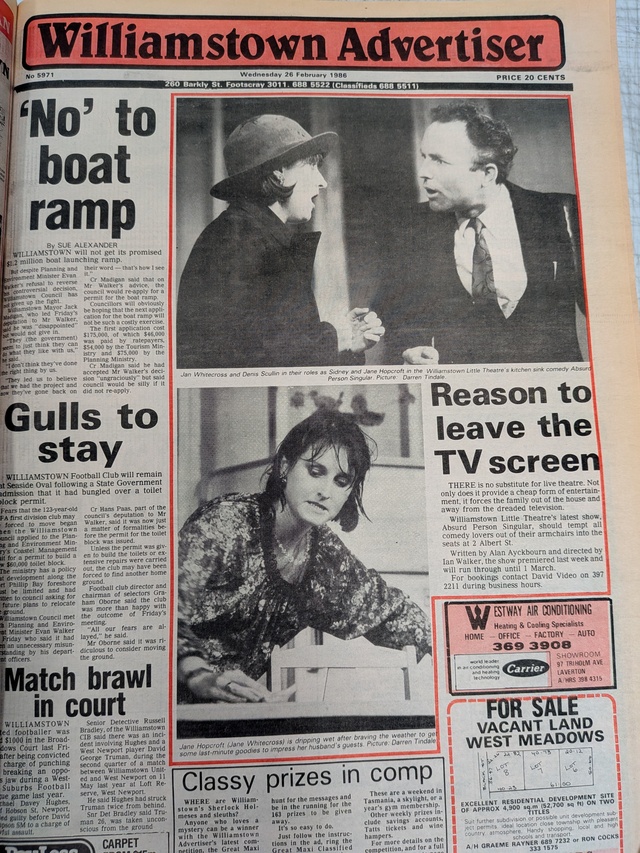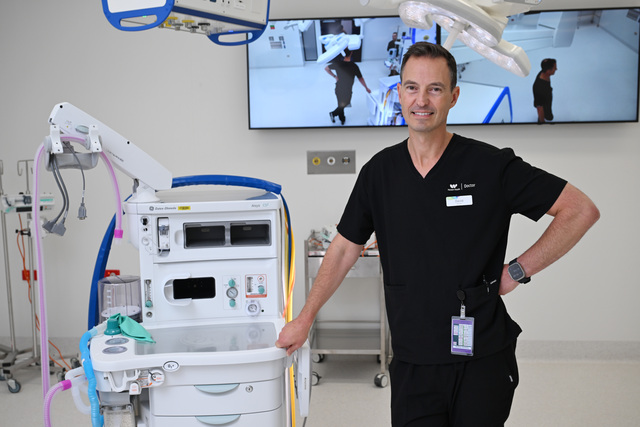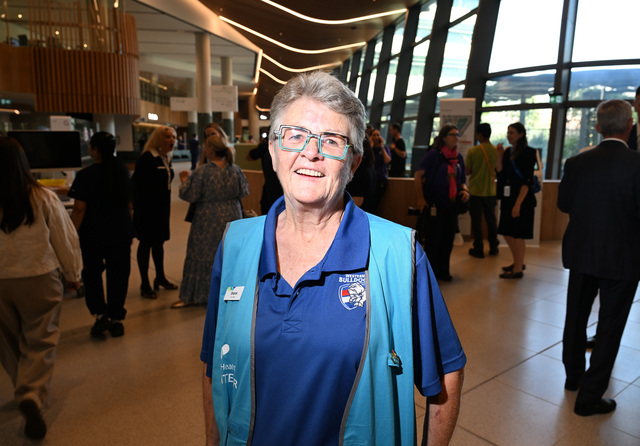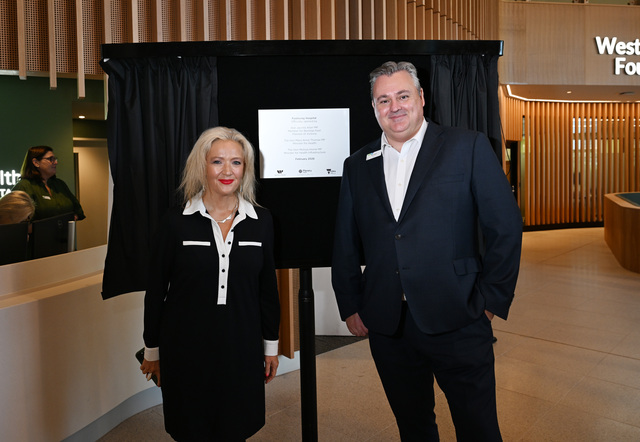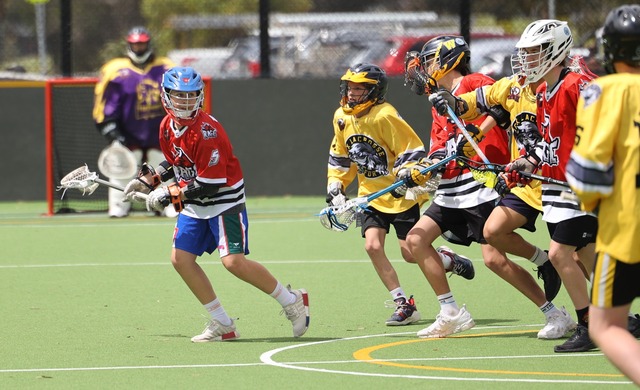Community radio station pbs 106.7Fm has been on the airwaves for more than three decades, becoming an icon of melbourne’s alternative music and arts community with its slogan ‘home of little heard music’. Robert fedele went behind the mic to speak to a loyal band of radio hosts who do it for love, not money.
Wendy Tonkin, Metal Genesis,
Friday, 10pm
‘‘You walk in there and it’s like the town you’ve grown up with where you know everyone,’’ says Wendy Tonkin, referring to the community of radio announcers who keep PBS ticking along.
Tonkin knows the feeling, having grown up in Maryborough in central Victoria.
She describes herself as a tomboy who knocked around with a bunch of boys, a period in her childhood she says drew her to metal music.
The rebellious and power-charged genre was her way of relieving boredom.
‘‘There’s not much to do there,’’ Tonkin recalls of her hometown. ‘‘I think I could relate to it [metal]. The anger. But it didn’t make me angry. It was music that made me calm.
‘‘I wanted to get out to excitement. Somewhere where I could be me.’’
She eventually made it to the big smoke, moving to Melbourne when she was 19, and now lives in Williamstown.
She had left school at 15 with no education, ‘‘a typical country kid’’ as she puts it, and had two children.
About five years ago Tonkin, now 42, decided to go back to school and complete her VCE.
She ended up working in a law firm for a while but hated the environment.
‘‘I wanted to do something that made me feel good. Something that was for me.’’
Tonkin decided to join PBS as a volunteer, a station she listened to and enjoyed, starting there as a receptionist.
She undertook a radio announcer’s course purely to show new hosts how to work the equipment.
But before long she had her own show, harking back to old school metal and glam.
‘‘It wasn’t something I’d desired for years to do. It was just something that evolved,’’ Tonkin explains.
‘‘I love being able to share it [my music]. I love being able to play what I think is really cool music.’’
Tonkin plays old and new metal, sharing her personal tastes as well as giving fledgling metal bands an opportunity to be heard.
One of the highlights was speaking to her idol Alice Cooper.
‘‘My first ever face-to-face interview with a musician was with Alice Cooper and I was shaking in my boots.’’
Tonkin says she’s never quite sure who’s out there listening, but gets enough feedback to suggest she has an audience.
‘‘You just never know. Some days you’ll sit there and the phones won’t ring the whole show. Other times they’ll ring up and say I love this or that. You just never know.’’
She says she still gets a kick out of being on air and playing songs out of her personal jukebox.
But at the end of the day she’s just happy to be promoting metal.
‘‘If somebody else came along and had bigger and better ideas I’d move over and let them do it,’’ she says humbly.
‘‘I just want to hear that music on air, whether it’s me playing it or someone else.’’
Rob Ciolli, Behind The Beat,
Friday, 8pm
It’s safe to say that come Monday, Rob Ciolli already has Friday on his mind.
The 38-year-old Yarraville resident played in bands and DJ’d around Melbourne for years.
In 2008 he decided to join PBS and launched a hip-hop inspired program called Behind The Beat.
‘‘I wasn’t DJ’ing so much any more but I had all these records and wanted to play them,’’ Ciolli remembers.
‘‘This is my little outlet. My little thing that keeps me going and keeps me excited about life.’’
Like most announcers, Ciolli started on the graveyard shift but says while the hours can be challenging the experience is invaluable.
‘‘You go in there at two o’clock in the morning and there’s nobody else in the station. It’s a good training ground. There aren’t heaps of listeners and you get to experiment a lot.’’
Nowadays he has the primetime slot on Friday nights.
‘‘I certainly noticed a difference when I started … the number of people listening.’’
A software developer by day, Ciolli says he’s tried to celebrate the historical influence of hip-hop through his program.
He reckons he’s always seen his role as something he does for fun, never aspiring for a career or anything like that.
‘‘I’ll do it as long as the station is happy to have me,’’ he says proudly.
‘‘At one point I’ll get fed up and stop altogether. At this point I can’t see myself stopping.’’
Tom Sianidis, Jumpin’ The Blues,
Wednesday, 1pm
‘‘It opened up another world,’’ beams Tom Sianidis, of the Chicago Blues sound he fell in love with as a teenager in the ‘60s.
‘‘I just flipped. I took off hunting blues records. There were a few record import shops in the city at the time.’’
The Strathmore resident decided to take up a radio career later in life, undertaking a radio course and beginning at 3CR in Melton before moving to PBS.
‘‘I just learnt from a person who was basically learning themselves,’’ Sianidis says.
‘‘Public radio in those days was pretty much rough’n’ready. As you go on you learn things.’’
Sianidis is first and foremost a collector.
He has thousands of records piled away, names such as B.B. King, Screamin’ Jay Hawkins, and John Lee Hooker.
‘‘It’s a privilege to be at PBS and to be able to play the music you’re passionate about,’’ he says.
‘‘The music for me comes first. I’m not there to promote myself. It’s more about the music.’’
Sianidis holds down two part-time jobs, one as the maintenance man at Strathmore Primary, the other as a cleaner at St Aiden’s.
Like the other radio hosts at PBS who keep the station running, Sianidis is proud to be a volunteer.
‘‘It’s purely for the love of the music,’’ he says.
‘‘Music’s my passion. It always has been. It’s a very important part of my life.’’
Sianidis believes community radio plays an important role in injecting life into the local music scene.
As well as playing records, he also provides a gig guide to listeners.
He says the station’s slogan of Home of Little Heard Music certainly rings true.
Asked how long he will keep going, Sianidis says he hasn’t given it much thought.
‘‘I just enjoy being in the studio and putting on a program and sitting there listening to the music.’’
While he gives every impression of being stuck in the golden eras of the past, he says there’s still lots of great stuff being produced.
You’ve just got to go out there and find it.
‘‘Contemporary stuff still evolves. I’m not stuck in a ‘50s groove.’’

